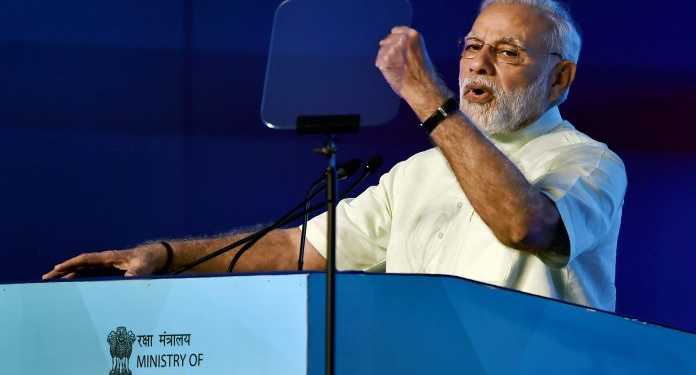The Indian government plans to unveil the Defense Production Policy (DPP) by next month to make India a manufacturing hub for defense equipment. The final touches are being given to policy document and it will soon go to the cabinet for approval. The focus of DPP-2018 will be to invest adequate sources to develop critical technology for manufacturing state-of-the-art military platforms including fighter jets, attack helicopters and weaponry indigenously. According to the draft policy, the government is looking at achieving a turnover of Rs 1.7 trillion (Rs 1, 70,000 crores) in military goods and services by 2025.
According to Swedish think tank Stockholm International Peace Research Institute (SIPRI), India is the largest importer of military hardware in the world for last five years and Indian imports of major weapons rose by 111 percent in the last five years compared to 2004-08. India inked 187 contracts worth Rs 2.4 trillion (Rs 2.40 lakh crore) with foreign and domestic firms for various military equipment and weapons in the last four years.
The draft of the DPP-2018 was made available to the public in March this year for review and feedback. It aims to raise FDI cap in niche tech to 74 percent. A higher FDI in defense sector will boost local manufacturing and catapult India into the League of Nations housing top defense and aerospace industries.
The government identified 12 military platforms and weapons systems for production in India to achieve the aim of “self-reliance”. They are fighter aircraft, medium lift and utility helicopters, warships, land combat vehicles, missile systems, gun systems, small arms, ammunition and explosives, surveillance systems, electronic warfare (EW) systems and night fighting enablers, among others. They said the policy aims to make India one of the top five manufacturers of defense platforms with the active participation of public and private sectors.
According to industry leaders, the goals of DPP-2018 are ambitious but achievable as there is a lot of potential for high skilled manufacturing in the country. “We believe that by laying down clear targets, the government has put forward an ambitious yet measurable plan for transforming the defense industry”, said Emmanuel de Roquefeuil, who heads the French aerospace and defense firm, Thales, in India. The investment of 70,000 crores in this sector could create 30 lakh jobs in the country. “It’s a grand vision document with unambiguous goals…To realize the targets, it is imperative to have clear time bound plans for execution”, said Lieutenant General (retd) Subrata Saha, director general for Society of Indian Defense Manufacturers and principal advisor of Confederation of Indian Industry.
The reliance on imports is a major problem for the defense sector in the country. The first problem comes regarding the secrecy in defense deals which erodes the public trust in the government. Every defense deal since Bofors has been controversial and every time opposition accuses the government of bribery and non-transparency. The Rajiv Gandhi government was thrown out of power due to Bofors scandal. The second problem with heavy reliance on imports in that the country has to beg the foreign companies to cooperate in any kind of repairing or overhaul on this defense equipment. Even at the time of operations of major defense equipment like top class aircraft and submarines, the cooperation by manufacturing companies is required. If the equipment is manufactured in our country then we will not have to dependent on supplier companies to operate these weapons. The third problem with defense imports in that they cost huge foreign exchange of the country. Indian imports are already very high in comparison to exports which take the current account deficit high. If the imports could be minimized then we would have enough foreign exchanges to invest in other countries. The DPP-2018 is expected to make India a manufacturing hub for defense equipment so that India could export aircraft and submarines instead of importing them.

























